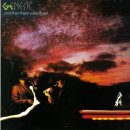Music Home / Entertainment Channel / Bullz-Eye Home
Genesis Reissues
Using the Chinese musical calendar, 2007 must be the Year of the Reissue. Between our good friends at Rhino and the upstarts at American Beat, we are positively swimming in expanded versions of this hit record or the long-out-of-print reissue of that record. Rhino’s latest project: Genesis, the bane of Trey Parker’s existence (not to mention Rik on “The Young Ones”). Would our writers be equally bored, bored, bored? ‘Fraid not, though there’s a perfectly good explanation for that: the newest album we were asked to cover was Abacab, so we were spared the soft-rock gobbledy gook of Genesis and Invisible Touch. Thank heaven for small miracles, though while we’re talking miracles, is it too much to ask that our writers see eye to eye on anything? Read on, and you’ll soon see what we mean…
 Buy your copy from Amazon.com
Buy your copy from Amazon.com
| Genesis: A Trick of the Tail Released: 1976 |
Peter Gabriel bolts to become a solo artist and Genesis isn’t sure who should fill those rather big and artsy shoes. After an exhaustive search, they found they had the guy all along and he was hiding behind the drum kit. A Trick of the Tail is a great album. This is Genesis before it morphed into the three and a half-minute to four-minute Phil Collins hit-driven machine. This is a progressive album with hints of pop along the way. “A Trick of the Tail,” the most pop oriented track on the album clocks, in at 4:35, but the other seven tracks are all over five minutes long. “Dance on a Volcano” opens the record with big keyboards, big drums and a rushed vocal from Collins that mimics Gabriel’s delivery. “Squonk” has a swagger and muscle that is absolutely irresistible. This record may have been originally crafted in 1976 but it sounds wonderful today. “Los Endos,” a nearly six-minute instrumental relying heavily on Tony Banks’ keyboard wizardy, fittingly closes the disc. The bonus DVD is loaded with cool stuff, too. Some 2007 re-issue interviews, old funny looking videos for three songs including “Trick of the Tail,” and a 1976 40+minute concert. Well worth the purchase, and the sound is fantastic.
pretendcritic@aol.com
 Buy your copy from Amazon.com
Buy your copy from Amazon.com
| Genesis: Wind and Wuthering Released: 1977 |
Only in the ‘70s could you have had such a thing as “progressive rock.” Kids these days like their pop music filled with mallrat emotion and song lengths that won’t break their short attention spans. But back then, you could noodle all day and night long, make side-long songs and the like. Genesis was one such group that worked that way in the ‘70s. Though they later trimmed away all the fat as it were, their pre-‘80s work highlights the group as a very professional, rarely over-indulgent progressive rock group. Wind and Wuthering was the second album by the band following Peter Gabriel’s departure, and as such is a bit more together than the preceding A Trick of the Tail, which found drummer Phil Collins taking over lead vocal duties. It was also the last album to feature guitarist Steve Hackett.
As noted by Mike Rutherford in the DVD interview portion of this reissue, the album feels a bit “feminine.” There aren’t really any heavy rockers on it, but that doesn’t take away anything from the finished product. Only the instrumental “Wot Gorilla?” is a bit of a throwaway here. Otherwise, you have such fine tunes as “Eleventh Earl of Mar, “One for the Vine” and “Blood on the Rooftops.” The album has been remixed entirely and sounds terrific. The DVD half of the reissue also includes the album in both a digital 5.1 and DTS mix, plus the aforementioned interviews, an appearance on “The Mike Douglas Show,” and some concert highlights from a Japanese show, whose picture quality leaves a lot to be desired. All in all, Wind and Wuthering is certainly a highlight from all those years ago.
jthompson@bullz-eye.com
 Buy your copy from Amazon.com
Buy your copy from Amazon.com
| Genesis: ...And Then There Were Three... Released: 1978 |
The title to this album is a literal reference to the fact that Steve Hackett had left the band, leaving the trio of Phil Collins, Mike Rutherford and Tony Banks to continue making their own brand of progressive rock music. But this record pointed decidedly to a new direction for post-Gabriel Genesis. Phil Collins was coming into his own as a singer, but there was a hint of pop sensibility that marked the journey toward the band’s mega-success of the ‘80s, and the songwriting is pretty impressive. The opening track, “Down and Out,” as well as the noodling glory of “Ballad of Big” and “Deep in the Motherlode” are all bombastically synth-driven, but there are tender moments like “Undertow” where Collins and company let the melody do most of the talking. Finally, the end track, “Follow You, Follow Me,” is a fine example that you can marry prog and pop and make it palatable to almost anyone; it was also the band’s first pop hit. The reissued CD comes with a DVD that has a few extra elements besides just being able to play the songs in your DVD player (including videos for “Many Too Many” and “Follow You, Follow Me”). There is also a recent interview with Collins and Rutherford about the making of the record, and some old, fuzzy footage that comes with a disclaimer that the video quality is going to suck. Still, fans of the band are going to find it all extremely entertaining.
mfarley@bullz-eye.com
 Buy your copy from Amazon.com
Buy your copy from Amazon.com
| Genesis: Duke Released: 1980 |
…And Then There Were Three… may have been the first album Genesis made as a trio, but Duke is the official coming-out party for the Collins/Banks/Rutherford version of Genesis that would soon take over the world. Collins steps up as a vocalist in a big, big way, and begins to assert himself as a songwriter (“Misunderstanding,” the band’s first big hit, and “Please Don’t Ask,” the clear forefather to “In Too Deep” and “One More Night”). But Genesis was still Mike and Tony’s band at this point, and while the desire to prog was still strong, they resist the urge to overindulge themselves, splitting the band favorite “Duchess” (an eerily prescient song about a Madonna-type singer) apart from “Duke’s Travels” and “Duke’s End.” The new mix job sure sounds spiffy, but my mind kept waiting for a certain guitar lick on “Misunderstanding” and a vocal echo in the choruses to “Turn It On Again.” Perhaps those were radio mixes? It is unclear, but the interview footage on the DVD is very informative, especially when Rutherford explains how the riff to “Turn It On Again” started off slow, and Collins, thinking like a drummer, suggested that they speed it up. The rest, as they say, is history.
davidm@bullz-eye.com
 Buy your copy from Amazon.com
Buy your copy from Amazon.com
| Genesis: Abacab Released: 1981 |
Ever wondered exactly when Phil Collins’ careers as the lead singer of Genesis and as a solo artist in his own artist officially began to blur into one identity with the general public? Me, too! Turns out it occurs at exactly six minutes and fifty-eight seconds into Abacab, at the precise moment that the Earth Wind & Fire horn section kicks in and cause “No Reply At All” to burst into life. Genesis’s evolution away from prog-rock and into a more mainstream pop-rock sound had been slow but still noticeable; with Abacab, however, the transition was complete…and then some. Engineer Hugh Padgham had worked with Collins on his solo debut, and he gladly helped Genesis hone their sound and give it a more commercial sheen. The album’s title track, “Man on the Corner,” and the aforementioned “No Reply at All” were deservedly huge radio hits, but Abacab is more than just those tracks. Banks’ “Me and Sarah Jane” is full of wonderful harmonies, and Rutherford’s keyboard-heavy “Like It or Not” sounds a bit like “Misunderstanding,” which isn’t a bad thing. Besides Collins’ “Man on the Corner,” the rest of the songs were written by the band as a whole, and while they aren’t all successes – “Who Dunnit?” is annoying as hell – Abacab was unquestionably a turning point for Genesis and remains one of their definitive albums. The bonus DVD includes more new retrospective interviews and archival videos, but fans will really eat up the opportunity to look a digitalized version of the band’s 1981 world tour program.
wharris@bullz-eye.com






